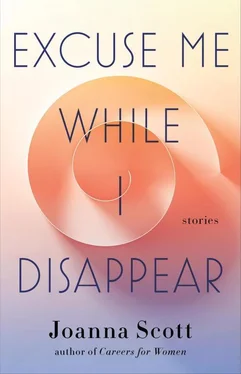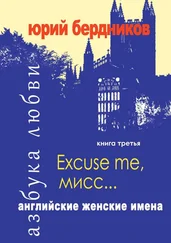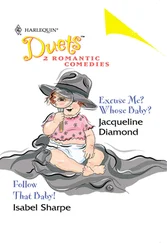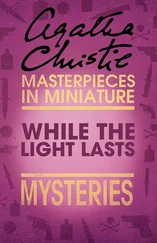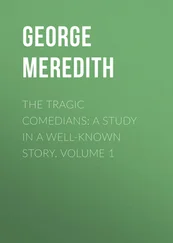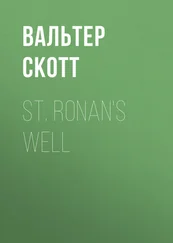9.
Meanwhile, back in Venice, there is trouble afoot. Books are coming out of the Fondaco dei Tedeschi as sharp as arrows from an advancing army, striking innocent victims in the heart. Vicenzo Constantini is growing ever more appalled. He pores over secular texts and inevitably finds the most outrageous blasphemies. He pores over sacred books and inevitably finds those sorts of intentional errors and additions that boys like Francesco add just for the fun of it.
As more people read, more people write. He has heard there is a widow in Pisa who supports herself by writing love poetry, a professor in Erfurt who encourages his students to write pamphlets denouncing the Catholic faith, and a theologian in Florence who has published an astrological guide. A shadow has fallen across the world; it is the shadow cast as the mountain of books rises higher and higher.
The more Vicenzo reads, the more he loses track of what should be the clear black border separating truth from fantasy. Was there really a girl who kept a sultan awake with her stories? He hates what he reads but can’t shake the desire to find out what happens next. His hands tighten into fists, as if he were preparing to defend himself physically, and he goes on reading about lust and murder, torture and incest, cruelty and death.
In a fit of righteous fury, he tears the book apart and throws the fragments out the window. He feels emboldened and looks around for another book to destroy. He delights in the sound paper makes when it is ripped. All through the night, a feathery confetti falls like a gentle snow from Vicenzo’s room, onto the cloister’s paving stones.
The next morning he sets out early, striding across Venice, grabbing books out of the hands of their readers and ripping them apart. A little girl bursts into tears at the sight of her shredded fairy tales. A dog hops through the crowd that has gathered, barking noisily. Vicenzo marches on. Over the course of the day he tears apart dozens of books, and he does the same the next day, yet like the false idols they are, they keep reappearing, until it seems to Vicenzo that for every book destroyed, another two appear in its place, or three, or even more, spreading like a weedy vine does when you sever the stem but fail to pull out its root.
The root, Vicenzo finally discovers, is a machine that came from Germany and on its own can stamp an inked matrix of precast letters on page after page, producing hundreds of books in the time it would take the quickest scribe to copy a single short book by hand. The machine’s metallic pounding echoes through the stone calli of Venice, where it has been installed by Aldus Manutius, who produces cheap, pocket-sized books, just like the books that were being copied so efficiently at the Fondaco dei Tedeschi.
The printer Aldus, as it happens, learned everything he knows about books in the same place where Francesco Colonna once worked—the commercial scriptorium in the Fondaco. And when he gets ahold of the book Francesco has written at the monastery, Aldus not only publishes it but has it decorated with beautiful woodcuts. He makes such a beautiful book that soon everyone has heard of it and wants a copy.
Alone in his room with the Hypnerotomachia Poliphili, the pages barely visible in the light from a single, sputtering candle, Vicenzo feels himself falling, hurtling head over heels through the infinite darkness. He cries out for mercy. If he needs proof that he is blessed, he gets it when God’s loving hand reaches out to catch him, lifting him into the sky. He beholds the scorching sun and then, inside the fringe of flames, a future that takes shape amidst the burning white.
It is inevitable that after spending so much time reading about dreamers, Vicenzo Constantini would end up stuck in his own dream. He dreams that he is falling again, and this time, instead of landing in the palm of God’s hand, he falls all the way to hell. He dreams that he lands unharmed, sinking into a soft bed of ashes. He digs his way out and stands facing a bonfire as big as a mountain, fueled by paper covered with words that never should have been written.
Vicenzo finds a stick and touches the tip to the fire to set it alight, then he makes his slow ascent out of hell and back to his lonely room, where that maddening book by Francesco Colonna lies open on the desk.
History will remember Francesco Colonna and his book, but it will not remember the principled Venetian prelate who stole through the sestieri of the sleeping city, a burning taper in his hand. And though history won’t let us forget that the Fondaco dei Tedeschi as we know it today was rebuilt after burning to the ground in 1505, it will fail to mention the cloaked figure who pried open a window in the middle of the night, climbed up to the storage room in the attic, and thrust his taper into a pile of books. There is no way history could tell us who set the fire that destroyed the Fondaco, because through the rest of the night and the next day, while the fire continued to burn out of control, Vicenzo Constantini hid himself among the crowd of spectators, his pale lips pressed tight, keeping his dirty little secret to himself.
I.
“You saved nothing?” I asked, unable to contain my disappointment. I’d been hoping that a woman of her advanced age would have a diary or two in a drawer, maybe index cards or even notes scrawled on the backs of those old envelopes used for baronial cards.
She idly tapped the tassel on the window blind to set it swinging. “My dear, multiply two by zero and it would be nothing. Which differs from the anything I presume you are asking about, and which, yes, the last went into recycling when I moved here.”
“You have no manuscripts anywhere? No letters?”
She observed me, then lifted her head to direct her gaze downward, through the bottom half of her bifocals. “I see you’re writing with a pen. On paper. The old-fashioned way. But surely you haven’t forgotten that until quite recently, paper was discouraged as an indulgent, poisonous consumption. The taxes on a single ream… who could afford it? And if you could afford it, you didn’t want your enemies to know. My generation was particularly suspect—thus the public statute requiring accreditation from EcoGreen before we could receive social security. Writers, of course, were notorious. Have you heard of Olivia Gastrell?”
I scribbled the name, adding it to a list that was growing ever longer with each writer I interviewed. “Gastrell—with two l ’s?”
She reached for a glass of water on her bedside table and took a sip. “You haven’t read her? Surprising, given your interests. She came late to fiction, published her first novel, Fortunate Odyssey, when she was fifty-two. She would have won a Hermes with Say What You Mean, but she skipped the ceremony and thus forfeited the award. Not that she needed honors to buck her up. My dear friend Olivia. She was nearly eighty when she hired movers to transfer her papers to a storage unit. Two hundred and five pounds of cellulose pulp—that was two hundred pounds over the personal legal limit. The movers were obligated to file a report. The authorities seized and destroyed everything. She had to pay a fine. …I don’t remember how much, but it was significant.”
“Is she still alive?”
She sucked in her lips as she considered her response, then looked toward the door, seeming to will the interruption that came a moment later, the sharp knock startling me to the point that I bounced up from my seat, then fell back.
“Come in!”
The nurse, a bearded man lithe as a dancer, entered holding a paper cup. “M&M time!” he announced, rattling the pills deposited inside the cup. “You need more water, hon?”
Читать дальше
